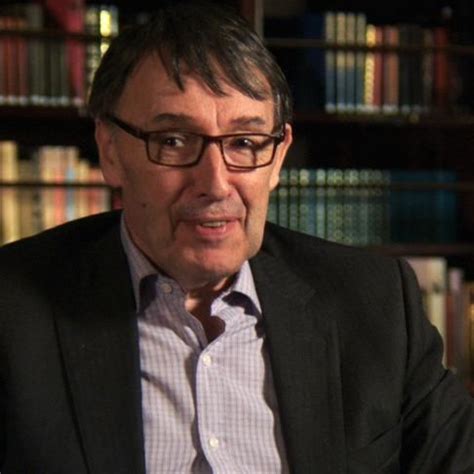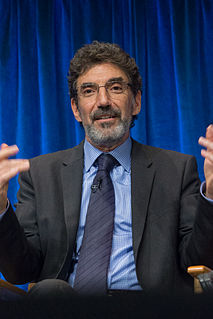A Quote by Christopher Isham
Perhaps the best argument...that the Big Bang supports theism is the obvious unease with which it is greeted by some atheist physicists. At times this has led to scientific ideas...being advanced with a tenacity which so exceeds their intrinsic worth that one can only suspect the operation of psychological forces lying very much deeper than the usual academic desire of a theorist to support his or her theory.
Related Quotes
Of course, Jastrow's comment is exaggerated at best; theologians hardly predicted the Big Bang. If our universe turns out to be closed, hence with an end, this does not mean apocalyptic visions of the end of the world were on target. And even if a beginning for the universe is a successful prediction of one version of theism, this is still not that impressive. After all, even a stopped clock is right twice a day. The Big Bang becomes strong support for God only with an argument showing that such a beginning requires a Creator.
It is ironic that the scientific facts throw Darwin out, but leave William Paley, a figure of fun to the scientific world for more than a century, still in the tournament with a chance of being the ultimate winner... Indeed, such a theory is so obvious that one wonders why it is not widely accepted as being self-evident. The reasons are psychological rather than scientific.
We have all been given a gift with 'The Big Bang Theory,' a show that's not only based in the scientific community, but also enthusiastically supported by that same community - this is our opportunity to give back, in that spirit, our 'Big Bang' family has made a meaningful contribution, and together, we'll share in the support of these future scholars, scientists and leaders.
The universe, in a big bang mode, is still expanding, which means it's cooling down, and evolution seems to be going against this; we're almost battling it. That led me on to a more creative, philosophical way of thinking, which is what led into influencing some of the songs, which is, maybe this is what our struggle is.
We hear a lot about theological justifications for the conflicts, but very little about the scientific evidence, which in no way supports them. The time period in which Moses was leading his people out of Egypt, into the Promised Land, the Promised Land was Egypt. We know that. Archaeological records are very clear. The Egyptians were avid bureaucrats even in those days and kept very scrupulous records. I think it's important for us to realize this conflict is built on a legend. It has no scientific support.
Superstring theories provide a framework in which the force of gravity may be united with the other three forces in nature: the weak, electromagnetic and strong forces. Recent progress has shown that the most promising superstring theories follow from a single theory. For the last generation, physicists have studied five string theories and one close cousin. Recently it has become clear that these five or six theories are different limiting cases of one theory which, though still scarcely understood, is the candidate for superunification of the forces of nature.
The theory of free speech, that truth is so much larger and stranger and more many-sided than we know of, that it is very much better at all costs to hear everyone's account of it, is a theory which has been justified on the whole by experiment, but which remains a very daring and even a very surprising theory. It is really one of the great discoveries of the modern time.
Man is more than his environment. It is from the innate quality of the Spirit in him, his inner storehouse, that he draws those ideas, his intuitions, which unify his perceptions of the external world instantaneously with a value which is qualitative and not quantitative, and which he embodies in the works of his culture - those achievements which belong not only to one particular time but to all times, and mark the path of his upward progress.
There is the theory that all the living forms in the world have arisen from a single source which itself came from an inorganic form. This theory can be called the 'general theory of evolution,' and the evidence which supports this is not sufficiently strong to allow us to consider it as anything more than a working hypothesis.
It is only because the majority opinion will always be opposed by some that our knowledge and understanding progress. In the process by which opinion is formed, it is very probable that, by the time any view becomes a majority view, it is no longer the best view: somebody will already have advanced beyond the point which the majority have reached. It is because we do not yet know which of the many competing new opinions will prove itself the best that we wait until it has gained sufficient support.
Modern thinking is that time did not start with the big bang, and that there was a multiverse even before the big bang. In the inflation theory, and in string theory, there were universes before our big bang, and that big bangs are happening all the time. Universes are formed when bubbles collide or fission into smaller bubles.

































